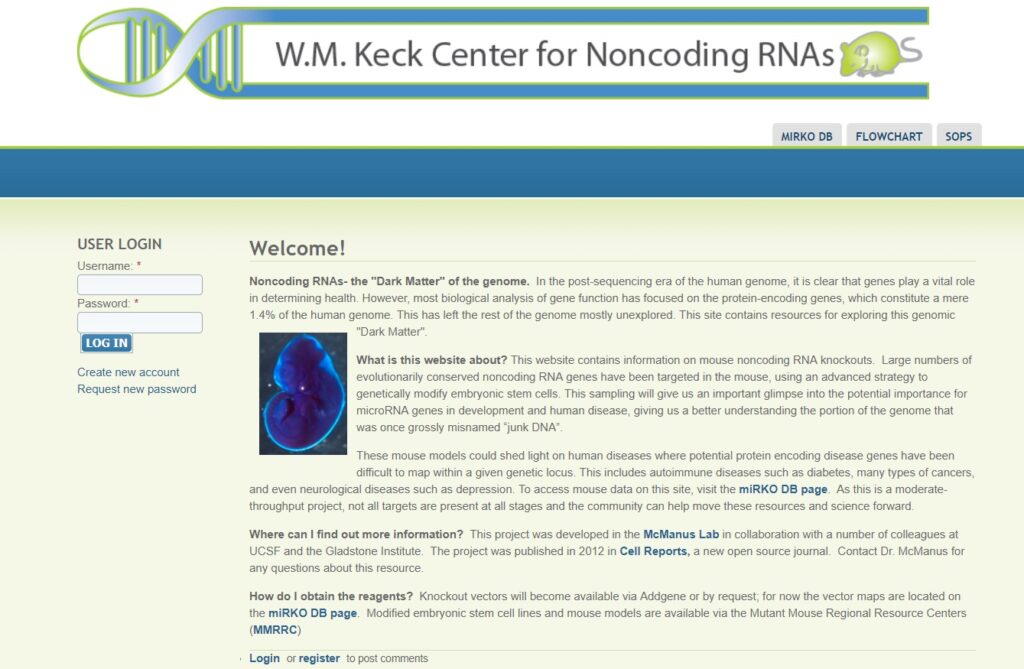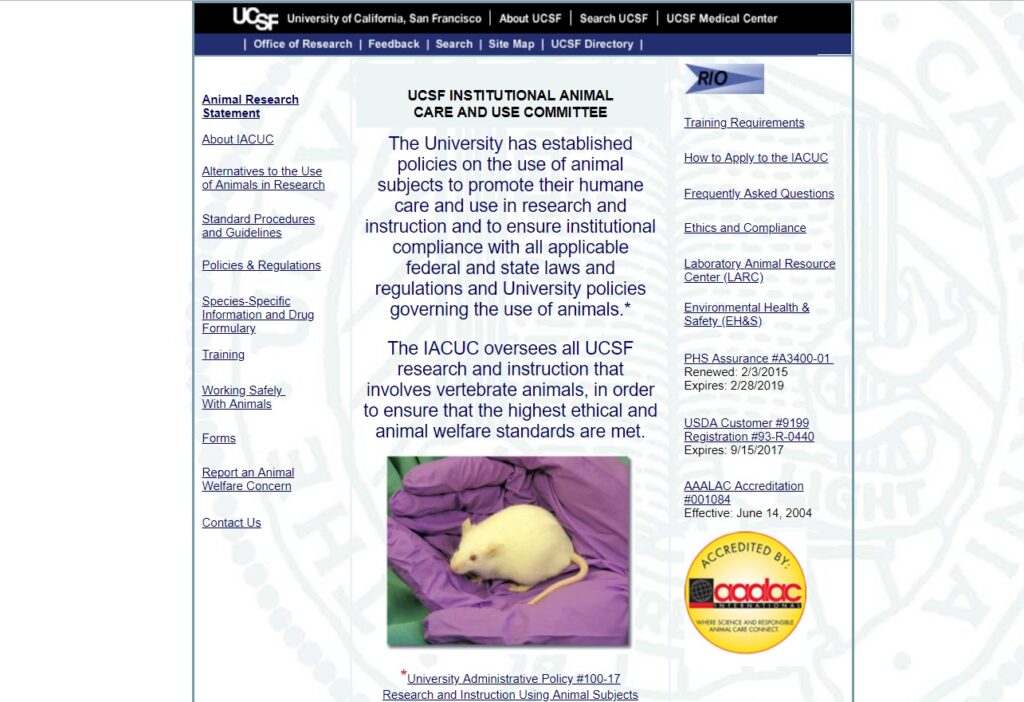As discussed previously here, we’ve been working on expanding our web-archives presence in all areas across campus, and one of the developments we’re most excited about is getting the web-archiving process formalized in centralized UCSF workflow for upgrading websites or retiring abandoned ones. Now that we have been successful in establishing this program, archiving a site is an official part of the website roll over or retirement process, which means we have a much better finger on the pulse of the UCSF web presence.
And as this process ramps up, we’ve been adding all sorts of fascinating UCSF websites to our collections, so we wanted to highlight a few recent acquisitions.
First is a complete copy of the website for the W. M. Keck Center for Noncoding RNAs, which is scheduled to be rolled over to a new platform soon. The Keck Center explores the 98.6% of the human genome which is “non-coding,” or which is not the part of the genome directly containing the code to create proteins. Since, in their words, most genetic research focuses on the protein-encoding genes — those genes whose purpose is clear — the area of non-coding RNA can be thought of as “genetic dark matter.” Even though the purpose of this generic material is not clear, it still influences human health, and it is the mission of the Keck Center to figure out how.

Homepage of the archived version of the W.M. Keck Center website.
The lab uses mice in their process, modifying mouse stem cells and using mouse genes to examine the function of these non-coding RNAs. And conveniently, their lab website contains all the raw genetic data, as well as the experiment plans, images, and other associated data for these experiments. We’re excited about this capture because we were able to collect all this data at once and provide a snapshot of the lab’s work — complete with all the associated research materials. This is a huge help in tackling the problem of historic preservation of contemporary scientific work, and it even begins to address the very present problems of reproducibility in data-intensive and computing-intensive scientific research.
Additionally, another web-site which we have recently captured illustrates the value of curating a selection of the UCSF institutional ecosystem all together. This is the site of the UCSF Institutional Animal Care and Use Committee. Say, for example, that in examining the archived site of the Keck center, you also wondered what the legal treatment protocols and procedures were at the time for scientific research involving animal subjects, and whether or not the Keck center was following those protocols. With a little clicking around on the Wayback Machine you would be able to quickly answer that question, and would have a clear picture of where the Keck center’s research fit into the larger legal and ethical questions on campus and in the scientific community about proper treatment of and care for the animals used in research.

Homepage of the archived version of the UCSF Institutional Animal Care and Use Committee.
We look forward to continuing to build and enrich our web-archive collections, and remember that if you have a suggestion you can always request that we begin capturing your UCSF site!
